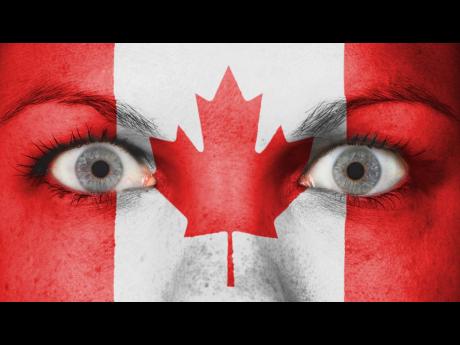Immigration Corner | Canadian border open to tourists
Dear Miss Powell,
I like reading your articles about Canada and would like a chance to see the country for myself during my Christmas holidays. Are they issuing visas now? If so, what documents would they need? How long does it take to process? Your guidance would be appreciated as I don’t want to waste my money and time. You know how the USA and Canada can be strict. I look forward to reading your answer in one of your articles. Thank you.
– LL
Dear LL,
Starting today, September 7, 2021, the Canadian government will allow tourists, discretionary or non-essential visits to Canada from almost all countries, if everyone has a valid visa or travel document and is fully vaccinated.
In a previous article, I highlighted the steps that you need to take before boarding a flight. This includes presenting a negative PCR COVID-19 test, uploading your proof of an approved vaccination via the ArriveCan application, and doing a PCR test upon arrival. Kindly ensure that the negative COVID-19 molecular test is taken within 72 hours of your planned entry into Canada. For individuals travelling via air, the test must be taken within 72 hours of the scheduled departure time of your final flight to Canada. It is recommended that you use a direct flight, or have a short layover, to avoid redoing a test in the last country before entering Canada.
VALID VISA
Most visitors from the Caribbean and African countries are required to have a valid temporary resident or visitor’s visa before you will be permitted on a plane that is Canada bound. The government of Canada is accepting applications via their online portal at www.Canada.ca.
You should check the processing time on their website based on your home country, so that you know what to expect. Currently, the average processing time for temporary resident/visitor’s visa from the Caribbean is approximately four to six months. If you are applying from countries such as Uganda (540 days), Egypt (98 days), Kenya ( 241 days); so be sure to apply long in advance of your planned visit, to avoid the anxiety of waiting for a response. The processing time reflected on their website is based on when Immigration Refugee and Citizenship Canada ( IRCC), the visa processing department of the Canadian government, receives a properly completed application; and this may change depending on the number of applications the particular visa office is handling.
The documents that are required will be based on your background, your family, economic and social ties to your home country, and the overall reason for visiting. How long do you intend to stay? You could provide a travel itinerary, invitation letter, hotel booking and a letter of employment that outlines your vacation period. Your job letter should also demonstrate your economic ties to your home country. The job letter must be on your employer’s letterhead and signed by an authorised supervisor/human resource manager. It should also include your job title, period of employment, your income and vacation period. If you are self-employed, you must provide a copy of registration of business, proof of tax returns, a letter from a justice of the peace and any other document to show that you own/operate a legitimate and viable business.
You should also provide a bank statement showing that you have enough funds to pay for the trip, and can meet your financial responsibilities before, during and after the trip.
Do you own registered or unregistered land? Present a copy of your land title or a statutory declaration that you are the legitimate owner and occupier of an unregistered land. If you lease or rent your home, own a motor vehicle or other tangible assets, you should provide evidence.
What are your social ties to your home country? Are you married/ engaged or in a common-law relationship? Do you have children? Are you a member of any organisation, or the leader or organiser of any social activities in your community? You should present documents that answer these questions.
The above is not an exhaustive list of documents. The key is to present clear evidence that will prove that you will return at the end of the time granted, that you will respect the laws of Canada, as well as that you are not a threat to the safety of citizens and others in Canada. If you have additional questions, consult directly with a Canadian immigration lawyer.
Deidre S. Powell is a Canadian immigration lawyer, mediator and notary public with office located in Ottawa, Ontario. Email: info@deidrepowell.com. Subject line: Immigration. Find her on Twitter, Facebook, Instagram and LinkedIn.


